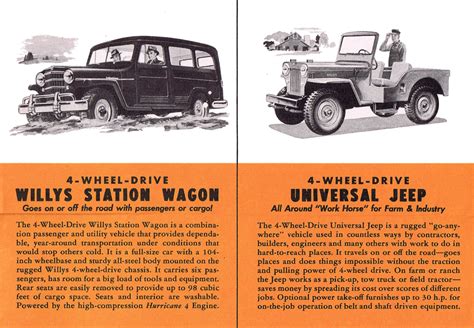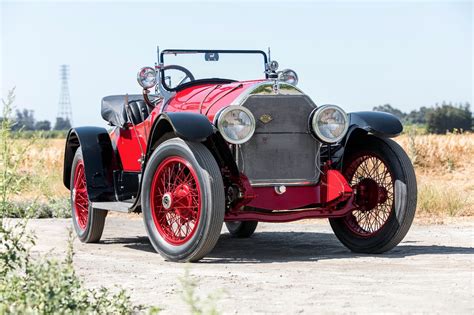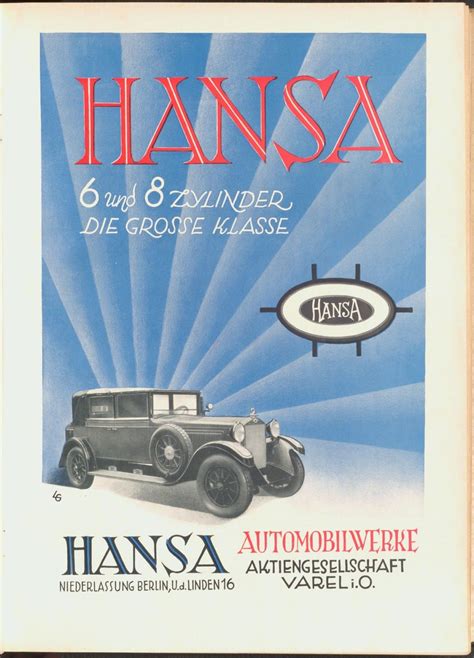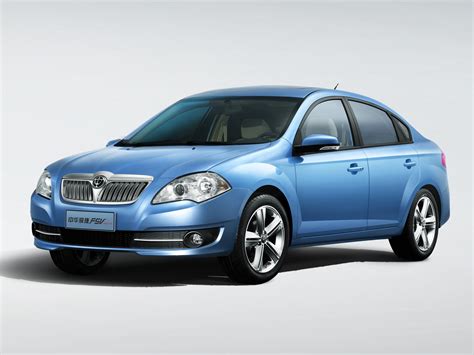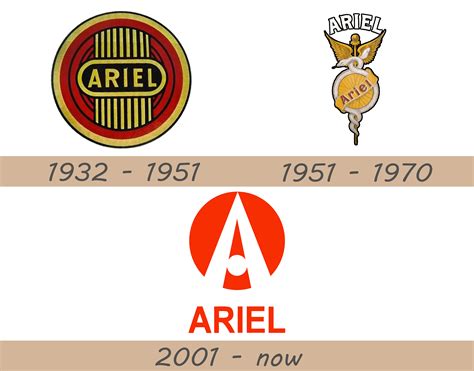Explore the fascinating history of Willys Car Company, from its origins to its impact on civilian vehicles, and the enduring legacy of the Jeep.
The Origins of Willys Car Company
Contents
The Willys Car Company was founded in 1908 by John North Willys. It all started in Elmira, New York, where Willys got his start in the automotive industry by selling Overland cars. He eventually acquired the Overland Automotive Division of Standard Wheel Company and renamed it Willys-Overland Motor Company in 1912.
Under Willys’ leadership, the company gained a reputation for producing reliable and affordable vehicles. By 1917, Willys-Overland was one of the largest car manufacturers in the United States. The company’s early success was due in part to its focus on mass production and cost efficiency, making automobiles accessible to a wider range of consumers.
Willys’ commitment to innovation and quality paved the way for the company’s continued growth and success. In the years following its founding, Willys-Overland introduced several new models and expanded its production facilities to meet growing demand. The company’s impact on the automotive industry was significant, setting the stage for its enduring legacy.
As the Willys Car Company continued to evolve, it became synonymous with durable and versatile vehicles. The company’s dedication to excellence and innovation laid the foundation for the development of the iconic Jeep, a vehicle that would come to symbolize rugged utility and dependability. Willys’ contributions to the automotive world have left a lasting impression, shaping the industry for generations to come.
Development of the Willys Overland Model
Development of the Willys Overland Model
Willys Overland Model was an essential part of the history of Willys Car Company. The development of this model marked a significant milestone in the automotive industry, as it showcased innovative design and engineering. The Willys Overland Model was a breakthrough in terms of its performance and capabilities, setting new standards for off-road vehicles.
The Willys Overland Model was developed in response to the growing demand for rugged and reliable vehicles that could withstand rough terrain and extreme conditions. The company invested heavily in research and development to create a vehicle that would exceed expectations and deliver superior performance. The result was the Willys Overland Model, a game-changing vehicle that revolutionized the off-road driving experience.
The Willys Overland Model was equipped with advanced features and technologies that set it apart from other vehicles of its time. Its powerful engine, durable construction, and innovative four-wheel drive system made it a top choice for both military and civilian use. The Willys Overland Model became known for its exceptional reliability and versatility, earning a reputation as a go-to vehicle for challenging environments.
This remarkable model played a crucial role in establishing Willys Car Company as a leading manufacturer of off-road vehicles. Its success paved the way for future advancements in automotive technology and inspired the development of the iconic Jeep vehicles. The Willys Overland Model remains a symbol of innovation and quality, leaving a lasting impact on the automotive industry.
Wartime Production and the Jeep
The Willys Car Company played a crucial role in the production of vehicles during World War II. As the demand for reliable military transportation increased, the company shifted its focus to support the war effort. Utilizing its expertise in automotive manufacturing, Willys began producing the iconic Jeep for military use. These rugged and versatile vehicles were essential for transporting troops, navigating rough terrain, and performing a wide range of tasks on the battlefield.
Willys’ contribution to wartime production significantly impacted the outcome of the war. The Jeep became synonymous with durability and reliability, earning a reputation as an indispensable asset for allied forces. Its success on the battlefield solidified Willys’ position as a leading manufacturer of military vehicles, showcasing the company’s ability to innovate and adapt to the demands of wartime production.
During World War II, the Jeep became an iconic symbol of American strength and ingenuity. Its rugged design, exceptional performance, and versatility made it a vital tool for military operations. The Willys Car Company was instrumental in producing these legendary vehicles, contributing to the war effort and leaving a lasting impact on the automotive industry.
After the war, the legacy of the Jeep lived on, as Willys continued to develop and improve upon the original design. Its wartime production of military vehicles had a significant influence on the company’s future endeavors, shaping its reputation and contributing to the evolution of civilian vehicles.
Post-War Expansion and Civilian Vehicles
History of Willys Car Company
After the end of World War II, the Willys Car Company faced new challenges and opportunities. With the war over, there was a shift in demand for vehicles, and Willys had to adapt to these changes. The company saw the potential for growth in the civilian market and focused on expanding its product lineup to meet the needs of everyday consumers.
One of the most iconic vehicles to come out of this era was the Willys Jeep Station Wagon. Introduced in 1946, this vehicle was the first mass-market all-steel station wagon. It offered the practicality and versatility that American families were looking for, and it quickly became a staple of suburban life. The success of the Jeep Station Wagon demonstrated Willys’ ability to innovate and create vehicles that resonated with the public.
In addition to the Jeep Station Wagon, Willys also introduced the Jeep Truck in 1947. This light-duty pickup truck was designed to compete with other popular trucks of the time, and it featured the rugged reliability that Willys vehicles were known for. The Jeep Truck further expanded Willys’ presence in the civilian vehicle market and solidified the company’s reputation for producing durable, hardworking vehicles.
Throughout the post-war period, Willys continued to leverage its strong brand and reputation to expand its offerings. The company introduced new models and made improvements to existing ones to keep up with the changing demands of consumers. Willys’ commitment to quality and innovation allowed it to thrive in the post-war era, and its vehicles became synonymous with rugged dependability.
Overall, the post-war expansion and focus on civilian vehicles played a crucial role in shaping the legacy of the Willys Car Company. By adapting to new market conditions and investing in new product lines, Willys was able to solidify its place in the automotive industry and cement its reputation as a leading manufacturer of reliable, versatile vehicles.
Legacy and Impact of Willys Car Company
As we reflect on the legacy and impact of Willys Car Company, it becomes evident that this iconic automobile manufacturer has left an indelible mark on the automotive industry. With a history dating back to the early 1900s, Willys played a significant role in shaping the way cars were produced and distributed, ultimately influencing the trajectory of the entire industry.
One of the most enduring legacies of Willys Car Company is its introduction of the Jeep during World War II. Originally designed for military use, the Jeep quickly gained a reputation for its durability, versatility, and off-road capabilities. This led to its widespread adoption by the military and cemented its status as an enduring symbol of American ingenuity and resilience.
Following the war, Willys Car Company leveraged the success of the Jeep to expand its reach into the civilian market, offering a range of vehicles designed for everyday use. This move not only solidified Willys’ reputation as a pioneering force in the automotive world but also helped democratize access to reliable and affordable transportation for millions of Americans.
Even beyond its immediate impact on the automotive landscape, Willys Car Company continues to exert influence through its lasting contributions to popular culture. The Jeep, in particular, has transcended its original purpose to become an enduring symbol of freedom, adventure, and rugged individualism. Its distinctive design and storied history have made it a beloved icon, cherished by enthusiasts and casual drivers alike.

